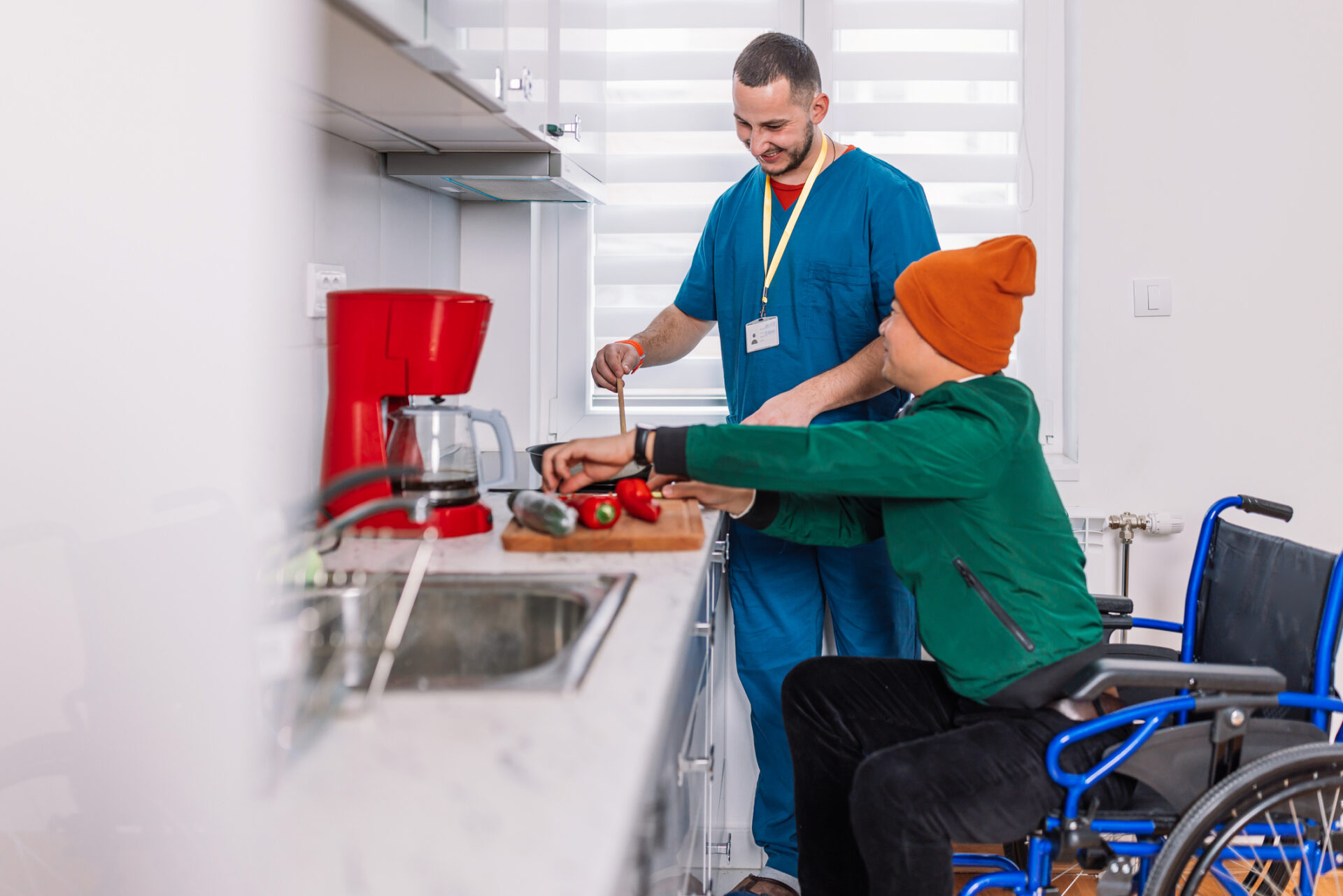
Co-production is a collaborative approach to safeguarding.
It means involving those who receive support, along with their family, friends and carers, in the planning and delivering of support.
The focus is to ensure that we hear the voices of those who are at the centre of the support. It’s about respecting their views, wishes and beliefs in order to make their support the best it can be.
Co-production features in the Care Act (2014) for England, the Social Services and Wellbeing Act (2014) for Wales and the Care Quality Commission (CQC) assessment framework. It is something all organisations should incorporate into their practice.
Why is Co-Production Important?
All people who receive support have the right to be consulted on and involved in the planning of their care.
The best way to create truly personalised, person-centred support is to collaborate. By putting the person at the centre of what we do we can ensure that they are living the life they want to, with goals and outcomes that benefit them. Everyone has the right to live the life they want to live.
How Can We Implement Co-Production?
We should thread co-production through everything a service does. It should not just be a ‘tick box’ exercise at an annual meeting, for example.
Consultations should take place at all stages of care planning. Incorporate reviews with the person, and regularly check in to see if they are still happy with their model of support. Also ask them whether they would like to make any changes.
As much as is practical, individuals should be present at planning meetings, best interests meetings, and during decision making processes. Services should make sure to present information in ways that are accessible and meaningful to the person involved.
Train staff to understand and implement co-production. Make sure they have the listening skills to promote this and the values to create it. Everyone should be committed to this model of working.
How does Co-Production Impact Safeguarding?
Good safeguarding involves putting preventative measures in place to make harm, abuse and neglect less likely, while promoting the wellbeing of any individual who may be at risk.
Respecting a person’s rights in their service delivery can contribute to their wellbeing, resilience, and general happiness. In turn, this can put protective factors in a person’s life. This may make them less likely to be the victims of abuse or harm.
We can actively encourage people to have more control over their own lives. This may make them more likely to disclose things that concern them. They may also be more likely to report any ill treatment they receive.
Think about the Care Act’s (2014) principle of Making Safeguarding Personal. This is about keeping a person involved in everything related to them, including in a safeguarding situation, and seeing them as the experts in their own life. Co-production echoes this principle along with the disability rights slogan ‘Nothing about me, without me’. It’s about working with, not doing to.
Often those who receive support have historically been passive care receivers. They do not want to complain or question the care they get. This is where poor practices can be left unaddressed, creating an unsafe, sometimes abusive environment.
But if we listen to the views of the people we support we can create a culture where collaboration is seen as a daily part of life. We can thread collaboration through the ethos of the organisation. This will help us uphold their rights. And we can expect better outcomes as a result.
If we don’t ask people how they want to be supported, how will we ever know?
Co-Production is a key theme of Safeguarding Adults Week 2023.
Learn more about co-production and the week’s other themes.
